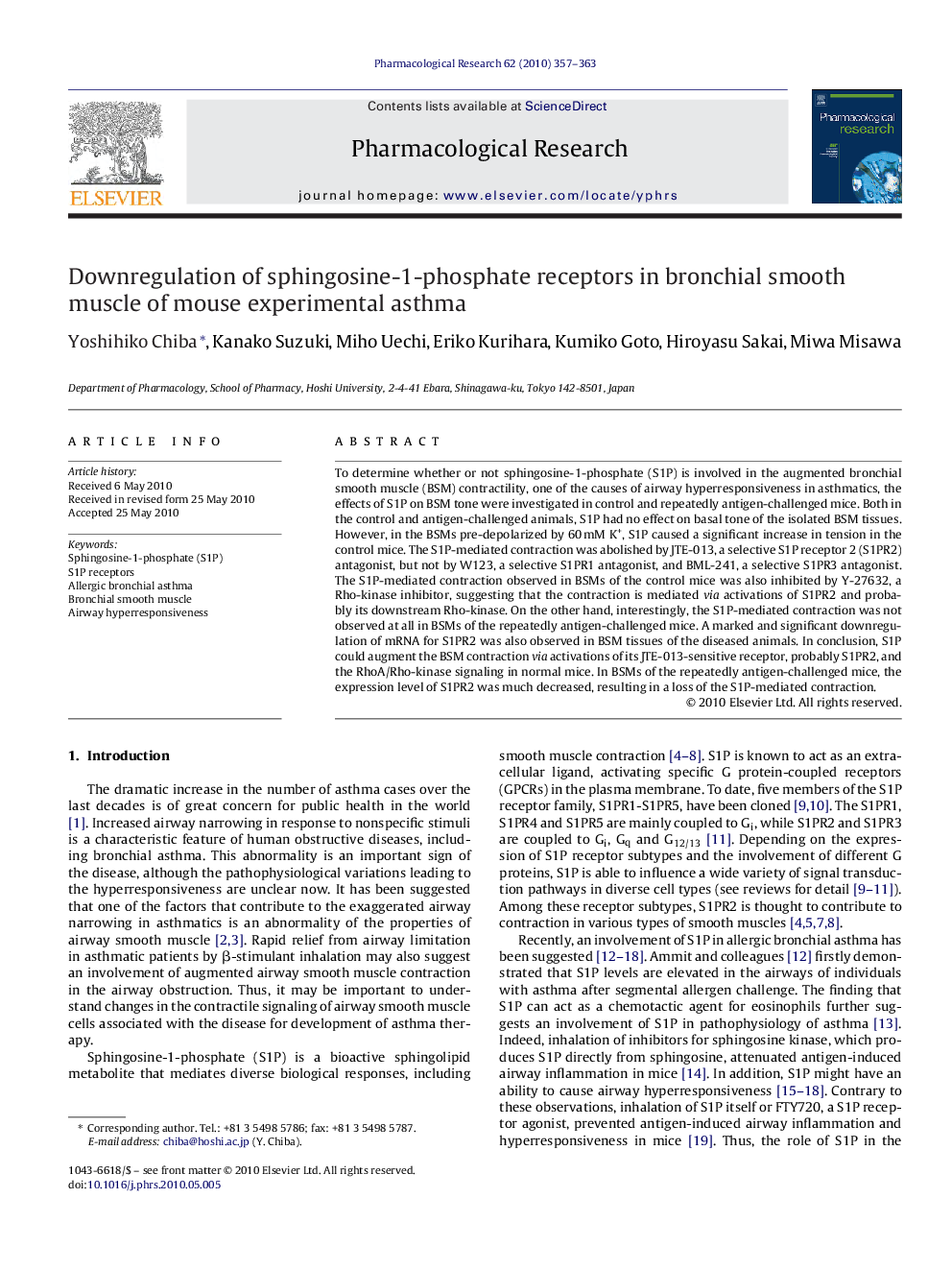| Article ID | Journal | Published Year | Pages | File Type |
|---|---|---|---|---|
| 2561370 | Pharmacological Research | 2010 | 7 Pages |
To determine whether or not sphingosine-1-phosphate (S1P) is involved in the augmented bronchial smooth muscle (BSM) contractility, one of the causes of airway hyperresponsiveness in asthmatics, the effects of S1P on BSM tone were investigated in control and repeatedly antigen-challenged mice. Both in the control and antigen-challenged animals, S1P had no effect on basal tone of the isolated BSM tissues. However, in the BSMs pre-depolarized by 60 mM K+, S1P caused a significant increase in tension in the control mice. The S1P-mediated contraction was abolished by JTE-013, a selective S1P receptor 2 (S1PR2) antagonist, but not by W123, a selective S1PR1 antagonist, and BML-241, a selective S1PR3 antagonist. The S1P-mediated contraction observed in BSMs of the control mice was also inhibited by Y-27632, a Rho-kinase inhibitor, suggesting that the contraction is mediated via activations of S1PR2 and probably its downstream Rho-kinase. On the other hand, interestingly, the S1P-mediated contraction was not observed at all in BSMs of the repeatedly antigen-challenged mice. A marked and significant downregulation of mRNA for S1PR2 was also observed in BSM tissues of the diseased animals. In conclusion, S1P could augment the BSM contraction via activations of its JTE-013-sensitive receptor, probably S1PR2, and the RhoA/Rho-kinase signaling in normal mice. In BSMs of the repeatedly antigen-challenged mice, the expression level of S1PR2 was much decreased, resulting in a loss of the S1P-mediated contraction.
Graphical abstractFigure optionsDownload full-size imageDownload as PowerPoint slide
